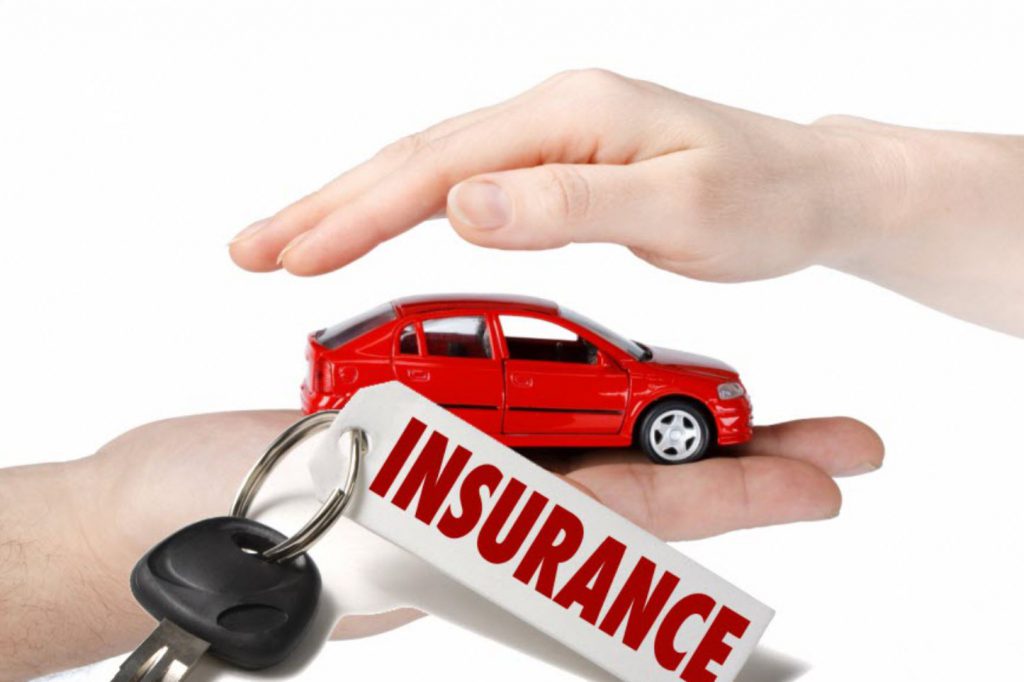Car insurance co is an essential aspect of responsible car ownership, offering financial protection against unexpected events. Understanding the various types of car insurance companies, coverage options, and factors influencing premiums is crucial for making informed decisions.
This comprehensive guide delves into the intricacies of car insurance, exploring key concepts, industry trends, and practical advice for navigating the insurance landscape. From choosing the right company and coverage to managing claims effectively, this resource empowers you to make the most of your car insurance experience.
Car Insurance Company Types

Car insurance companies operate under different structures and ownership models, which can significantly influence their pricing, customer service, and financial stability. Understanding these differences can help you make informed decisions when choosing your car insurance provider.
Mutual Insurance Companies
Mutual insurance companies are owned by their policyholders, who are also the company’s members. This means that policyholders share in the company’s profits and losses.
- Mutual companies are typically non-profit organizations, meaning they prioritize the needs of their policyholders over maximizing profits.
- They often offer lower premiums and better customer service, as they are directly accountable to their members.
- However, they may have limited investment options, as they are restricted in how they can use their funds.
Examples of prominent mutual insurance companies include State Farm, Nationwide, and Liberty Mutual.
Stock Insurance Companies
Stock insurance companies are owned by shareholders who invest in the company’s stock. The company’s primary goal is to generate profits for its shareholders.
- Stock companies are typically for-profit organizations, meaning they aim to maximize profits for their shareholders.
- They may offer more investment options, as they are not limited by the same restrictions as mutual companies.
- However, they may have higher premiums and less personalized customer service, as they are not directly accountable to their policyholders.
Examples of prominent stock insurance companies include Allstate, Progressive, and Geico.
Captive Insurance Companies
Captive insurance companies are owned by a parent company, usually a large corporation, to provide insurance coverage for its own assets and liabilities.
- Captive companies are typically non-profit organizations, as they are not designed to generate profits for external shareholders.
- They offer customized insurance solutions tailored to the specific needs of their parent company.
- However, they are not available to the general public and may have limited financial resources compared to larger insurance companies.
Examples of prominent captive insurance companies include AIG, Berkshire Hathaway, and Marsh & McLennan.
Car Insurance Coverage Options
Car insurance coverage options provide financial protection against various risks associated with owning and operating a vehicle. Understanding the different types of coverage and their benefits is crucial for making informed decisions about your insurance policy.
Liability Coverage
Liability coverage is a fundamental component of car insurance, offering financial protection in case you are at fault in an accident that causes injury or damage to another person or property. This coverage protects you from potential lawsuits and significant financial burdens.
- Bodily Injury Liability: This coverage pays for medical expenses, lost wages, and other damages incurred by the other driver and passengers in an accident you caused.
- Property Damage Liability: This coverage pays for repairs or replacement of the other driver’s vehicle or any other property damaged in an accident you caused.
Collision Coverage
Collision coverage helps pay for repairs or replacement of your vehicle if it is damaged in an accident, regardless of who is at fault. This coverage is essential if you want to ensure that your vehicle is repaired or replaced after a collision.
Comprehensive Coverage
Comprehensive coverage protects your vehicle from damage caused by events other than collisions, such as theft, vandalism, fire, hail, or natural disasters. This coverage is valuable if you want to be financially protected against unexpected damage to your vehicle.
Uninsured/Underinsured Motorist Coverage, Car insurance co
Uninsured/underinsured motorist (UM/UIM) coverage provides financial protection if you are involved in an accident with a driver who has no insurance or insufficient coverage. This coverage helps pay for your medical expenses, lost wages, and other damages if the other driver cannot cover the costs.
Personal Injury Protection (PIP)
PIP coverage, also known as no-fault insurance, pays for your medical expenses, lost wages, and other damages, regardless of who is at fault in an accident. This coverage is particularly beneficial in states with no-fault insurance laws.
Medical Payments Coverage (Med Pay)
Med Pay coverage is a supplemental coverage that pays for your medical expenses, regardless of who is at fault in an accident. It is a valuable addition to your insurance policy if you want to ensure that your medical expenses are covered, even if you are not at fault.
Rental Reimbursement Coverage
Rental reimbursement coverage pays for a rental car if your vehicle is damaged in an accident and is being repaired. This coverage is helpful if you need to continue using a vehicle while your car is being repaired.
Roadside Assistance Coverage
Roadside assistance coverage provides help with services such as towing, jump starts, flat tire changes, and lockout assistance. This coverage is valuable if you want to have peace of mind knowing that you will have assistance in case of a roadside emergency.
Factors Influencing Car Insurance Premiums
Car insurance premiums are calculated based on a variety of factors, and understanding these factors can help you make informed decisions about your coverage and potentially lower your premiums.
Driving History
Your driving history is a significant factor in determining your insurance premium. Insurance companies assess your risk based on your past driving record, considering factors like:
- Accidents: The number and severity of accidents you’ve been involved in, regardless of fault, directly impact your premium. A clean driving record with no accidents typically leads to lower premiums.
- Traffic Violations: Speeding tickets, reckless driving citations, and other violations can significantly increase your premiums. Insurance companies view these violations as indicators of higher risk.
- Driving Record: Your overall driving record, including the number of years you’ve been driving, can influence your premium. Drivers with a longer, accident-free record are often considered lower risk and receive more favorable rates.
Age
Age is another key factor influencing your car insurance premium.
- Young Drivers: Younger drivers, particularly those under 25, are generally considered higher risk due to their lack of experience and higher likelihood of accidents. As a result, they often face higher premiums.
- Older Drivers: While older drivers may have more experience, they can also be at higher risk due to factors like age-related health conditions or reduced reaction times. This can lead to slightly higher premiums for older drivers.
- Middle-Aged Drivers: Drivers in their mid-30s to mid-50s often have the most favorable premiums due to their experience and generally lower risk profile.
Location
Your location plays a crucial role in determining your car insurance premium. Insurance companies consider factors like:
- Population Density: Areas with high population density and heavy traffic tend to have higher accident rates, leading to higher premiums.
- Crime Rates: Locations with higher crime rates can increase the risk of car theft or vandalism, impacting insurance premiums.
- Weather Conditions: Regions prone to severe weather conditions like hurricanes, tornadoes, or heavy snowfall can increase the likelihood of accidents and thus, insurance premiums.
Vehicle Type
The type of vehicle you drive significantly influences your car insurance premium. Insurance companies consider factors like:
- Vehicle Value: More expensive vehicles, such as luxury cars or high-performance sports cars, typically have higher premiums due to the higher cost of repairs or replacement in case of an accident.
- Safety Features: Vehicles equipped with advanced safety features like anti-lock brakes, airbags, and stability control systems are generally considered safer and can result in lower premiums.
- Vehicle Size: Larger vehicles, such as SUVs and trucks, often have higher premiums due to their increased size and weight, which can lead to more severe accidents.
Credit Score
While not always a factor, your credit score can sometimes influence your car insurance premium.
- Credit Score as a Risk Indicator: Insurance companies may use your credit score as a proxy for your overall financial responsibility. Individuals with lower credit scores might be perceived as higher risk and face higher premiums.
- Not a Universal Factor: It’s important to note that not all states allow insurance companies to consider credit scores when setting premiums.
Other Factors
In addition to the primary factors discussed above, several other factors can influence your car insurance premium. These include:
- Marital Status: Married individuals often receive lower premiums compared to single individuals, as they are statistically less likely to be involved in accidents.
- Gender: In some states, insurance companies may consider gender as a factor, with women often receiving lower premiums due to their generally safer driving records.
- Occupation: Certain occupations, such as those involving long commutes or frequent travel, can increase the risk of accidents and may result in higher premiums.
- Usage: The frequency and purpose of your driving can influence your premium. For example, drivers who commute long distances daily may face higher premiums than those who drive less frequently.
Tips to Lower Car Insurance Premiums
Here are some tips to potentially lower your car insurance premiums:
- Maintain a Clean Driving Record: Avoiding accidents and traffic violations is crucial for maintaining a good driving record and lower premiums.
- Shop Around for Quotes: Compare quotes from multiple insurance companies to find the best rates for your needs.
- Increase Your Deductible: Choosing a higher deductible can lead to lower premiums, as you agree to pay more out of pocket in case of an accident.
- Consider Bundling Policies: Combining your car insurance with other insurance policies, such as homeowners or renters insurance, can often result in discounts.
- Improve Your Credit Score: If credit score is a factor in your state, improving your credit score can potentially lead to lower premiums.
- Take a Defensive Driving Course: Completing a defensive driving course can demonstrate your commitment to safe driving and may qualify you for discounts.
- Ask About Discounts: Inquire about available discounts from your insurance company, such as good student discounts, safe driver discounts, or discounts for installing anti-theft devices.
Car Insurance Claims Process
Filing a car insurance claim can be a stressful experience, but understanding the process can help you navigate it more smoothly. This section Artikels the key steps involved in filing a claim and offers advice on ensuring a successful outcome.
Reporting the Accident
It’s crucial to report the accident to your insurance company as soon as possible. This allows them to begin the claims process and gather necessary information. Most insurance companies have 24/7 claim reporting lines or online portals for convenience. When reporting, provide accurate details of the accident, including the date, time, location, and any injuries sustained.
Gathering Information
After reporting the accident, it’s essential to gather as much information as possible to support your claim. This includes:
- Police report: If the accident involved injuries or significant damage, a police report is essential. It provides an official record of the incident.
- Contact information: Exchange contact information with all parties involved, including drivers, passengers, and witnesses. This includes names, addresses, phone numbers, and insurance details.
- Photos and videos: Document the accident scene with photos and videos. Capture the damage to your vehicle, the other vehicles involved, and any surrounding road conditions.
- Medical records: If you sustained injuries, gather your medical records, including treatment details and bills.
Contacting the Insurance Company
Once you’ve gathered all necessary information, contact your insurance company to initiate the claims process. They will guide you through the next steps, including providing you with claim forms and instructions.
Role of the Insurance Adjuster
An insurance adjuster is a professional who investigates claims and determines the extent of the damage and the amount of compensation to be paid. They will review the information you provide, including the police report, photos, and medical records. The adjuster may also inspect your vehicle and conduct interviews with witnesses.
Assessing Claims and Determining Settlements
Based on their investigation, the adjuster will assess the claim and determine the amount of compensation you are eligible for. This will take into account factors such as the severity of the damage, your policy coverage, and any applicable deductibles. If you disagree with the adjuster’s assessment, you can appeal the decision.
Tips for Navigating the Claims Process
- Be prompt: Report the accident and gather information as soon as possible. This demonstrates your cooperation and helps expedite the claims process.
- Be honest and accurate: Provide complete and truthful information to your insurance company. Any inconsistencies or inaccuracies could jeopardize your claim.
- Keep records: Maintain copies of all documentation related to the claim, including police reports, medical records, and communication with the insurance company.
- Understand your policy: Familiarize yourself with your insurance policy, including coverage limits and deductibles. This will help you understand your rights and responsibilities.
- Seek professional advice: If you have questions or concerns about the claims process, don’t hesitate to consult with a legal professional or an insurance agent.
Car Insurance Company Ratings and Reviews
Choosing the right car insurance company can be a daunting task, with numerous options available. To make an informed decision, researching car insurance company ratings and reviews is crucial. These insights provide valuable information about the company’s financial stability, customer service, claims handling, and overall performance.
Importance of Researching Car Insurance Company Ratings and Reviews
Understanding the reputation of a car insurance company is essential for making a wise choice. Ratings and reviews offer a comprehensive picture of the company’s strengths and weaknesses, allowing you to compare different options and identify the best fit for your needs.
- Financial Stability: Ratings from organizations like AM Best and Moody’s assess the company’s financial health, indicating its ability to pay claims and remain solvent in the long term.
- Customer Satisfaction: Reviews from websites like J.D. Power and Consumer Reports reflect customer experiences with the company, covering aspects such as policy clarity, claims processing speed, and overall customer service.
- Claims Handling: Ratings and reviews often highlight the company’s efficiency and fairness in handling claims, providing insights into how quickly and smoothly claims are processed.
Reputable Sources for Car Insurance Company Ratings and Reviews
Several reputable organizations and websites provide valuable information about car insurance company ratings and reviews. These sources utilize various methodologies to assess companies based on financial stability, customer satisfaction, and other relevant factors.
- J.D. Power: A well-known organization that conducts surveys and publishes rankings for customer satisfaction in various industries, including car insurance. J.D. Power ratings consider factors such as claim satisfaction, policy offerings, and overall customer experience.
- Consumer Reports: A non-profit organization that provides unbiased reviews and ratings for consumer products and services, including car insurance. Consumer Reports evaluates companies based on customer satisfaction, claims handling, and financial stability.
- AM Best: A leading credit rating agency that specializes in assessing the financial strength of insurance companies. AM Best ratings are based on a company’s financial performance, underwriting practices, and overall risk profile.
- Moody’s: Another credit rating agency that provides assessments of the financial health of companies, including insurance companies. Moody’s ratings are based on a company’s financial performance, capital adequacy, and overall risk management.
- Insurance.com: A website that provides comprehensive information about car insurance, including company ratings, reviews, and quotes. Insurance.com aggregates data from various sources to provide a comprehensive overview of insurance companies.
Examples of How Ratings and Reviews Can Guide Insurance Choices
Car insurance company ratings and reviews can provide valuable insights to help you make informed decisions. For example:
- High Customer Satisfaction Ratings: If you prioritize excellent customer service and a smooth claims process, companies with consistently high customer satisfaction ratings from J.D. Power and Consumer Reports may be a good choice.
- Strong Financial Stability Ratings: If financial stability is a key concern, companies with strong ratings from AM Best and Moody’s indicate a lower risk of insolvency and a higher likelihood of paying claims.
- Positive Reviews for Claims Handling: Reviews highlighting efficient and fair claims handling can be reassuring, especially if you’ve had previous negative experiences with insurance companies.
Outcome Summary: Car Insurance Co

In conclusion, car insurance plays a vital role in safeguarding your financial well-being and protecting you against potential risks on the road. By understanding the intricacies of car insurance companies, coverage options, and industry trends, you can make informed decisions and secure the best possible coverage for your needs. Remember to shop around, compare quotes, and prioritize companies with a strong track record of customer service. With careful planning and research, you can navigate the world of car insurance with confidence and peace of mind.
Car insurance companies often offer comprehensive coverage, but you might be surprised to learn that your mobile carrier can also provide protection. T-Mobile, for example, offers insurance plans for your phone, which can be a valuable addition to your overall insurance portfolio.
While car insurance protects your vehicle, T-Mobile insurance tmobile insurance ensures your mobile device is covered against damage or theft. This means that your car insurance company and your mobile carrier can work together to safeguard your most important assets.
